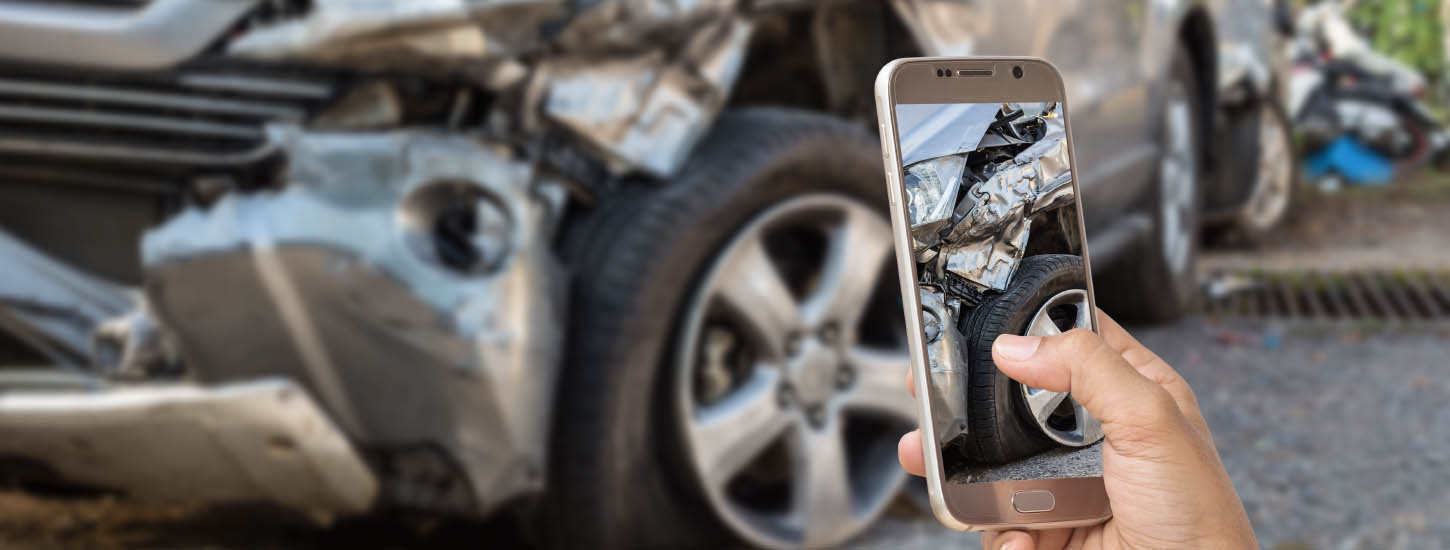DeSimone Law Office handles all aspects of damages that our clients suffer at the hands of negligent parties in car accidents.
Damages include:
- medical bills and expenses.
- lost time from work.
- monies for pain and suffering.
- reimbursement for property damages.
The main problem is proving up these damages to obtain that to which the client is entitled. There are two important things you can do to help prove up the damages of your case and maximize your settlement.
1. Immediately see a doctor after an accident.
Many unknowing claimants who are not represented by a lawyer will wait for a few weeks before going to a doctor. That act seems reasonable but will severely hurt a claimant’s case in the legal world. The insurance company will state that if someone is hurt, they go to the doctor right away. Thus, the insurance company can claim that any delay in treatment means that the injury complaint must have occurred after the car accident. They might try to point to some other event that the claimant is not telling anyone about.
I know these arguments are absurd, but they work on juries. Failure to go to a doctor quickly for treatment will result in a claimant’s recovery being negatively impacted. The lack of medical bills from not going to the doctor right away also negatively impacts the amount of money a claimant will receive for pain and suffering.
The amount of money an insurance company will pay for pain and suffering is directly related to the amount of the medical bills.
The insurance company’s argument is that if someone is in pain they go to the doctor. Thus, suffering for weeks without going to the doctor nets an injured claimant zero dollars for their pain and suffering.
Cut this insurance company tactic off by immediately seeing a doctor after any accident rather than waiting for your pain to become too much to bear.
2. Take photos at the scene of an accident.
Many cases would be more easily resolved or would settle for more money if clients took photos at scenes of accidents and any injuries they suffered. With the advent of cameras on cellular phones there is really no excuse not to get photo evidence at the scene of an accident unless a person is too injured to do so. Photos of a traffic accident scene and or any personal injuries can be helpful in several ways.
Often, there is a dispute at the scene of any car or truck accident about how the accident occurred. Pictures of the positions of vehicles taken immediately after an accident can be excellent evidence to assist in an understanding of how an accident happened. Once the vehicles have been moved, a negligent party can begin to spin lies about the position of the vehicle after the accident. Photos of the position of the vehicles will prove up that the negligent party is lying.
Pictures of the damage to the vehicles are also excellent in backing up a claim of injury from an accident. Pictures of both vehicles that show significant damage will put an end to the insurance company argument that the injury claimant is not really as hurt as they and their doctor are saying.
Finally, pictures of injuries such as bruising, broke bones, and bleeding are more effective in conveying an injury to a jury than words alone. Insurance companies know this and will pay more for claims where there are good pictures of any insurance claimant’s injuries.
Your first thought immediately following an accident may not be to take photos, and insurance companies use this fact against claimants. However, taking photos will bolster your case and help maximize your settlement.
Insurance companies have many more ways to limit the amount of money they pay to claimants. If you have been involved in an accident where you are injured, contact an experienced car accident attorney right away. They will make sure you are aware of all the things you need to do to protect your rights and obtain the monies to which you are entitled.

